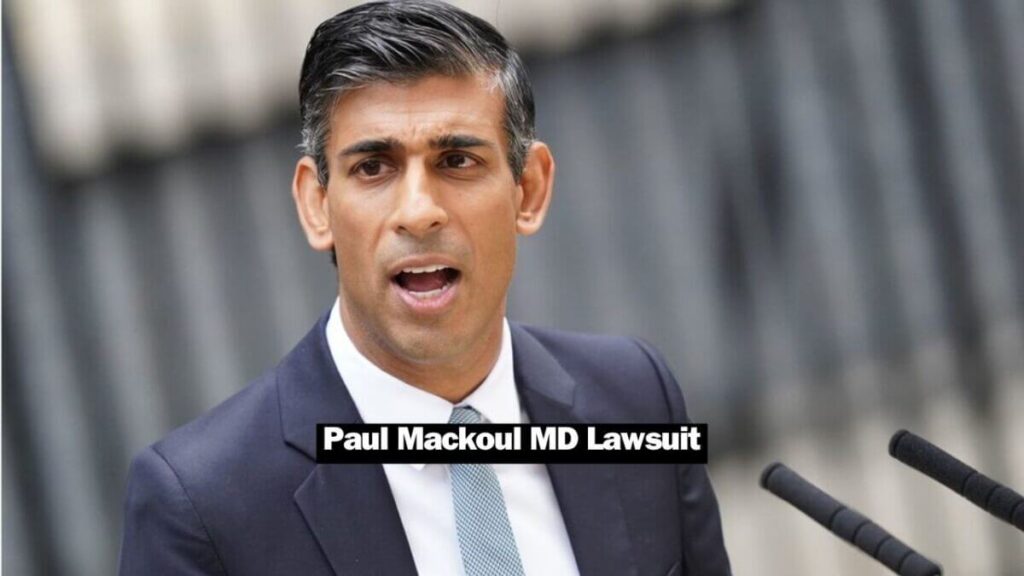Introduction
Paul Mackoul, MD, a notable gynecologic surgeon and co-founder of the Center for Innovative GYN Care (CIGC), has built a reputation for his expertise in minimally invasive surgical techniques. However, like many professionals in the medical field, his career has not been without legal challenges. This article delves into the specifics of a notable lawsuit involving Dr. Mackoul, exploring the background, the claims, the legal proceedings, and the implications for his career and the medical community.
Background of Paul Mackoul, MD
Dr. Paul Mackoul is a board-certified gynecologic surgeon with a specialization in advanced laparoscopic procedures and minimally invasive surgery. With a medical degree from the George Washington University School of Medicine and extensive training in oncology, Dr. Mackoul has contributed significantly to the field of gynecologic surgery. His work at CIGC has focused on developing innovative surgical techniques that reduce recovery time and improve patient outcomes.
The Lawsuit: An Overview
In [year], Dr. Mackoul faced a lawsuit filed by [plaintiff’s name], alleging [specific allegations]. The lawsuit brought against him was a significant event, considering his professional standing and the impact such legal challenges can have on medical practitioners.
Also Read: Sportsurge: The Ultimate Hub for Sports Streaming
Details of the Allegations
The allegations made against Dr. Mackoul centered around [specific details of the allegations]. The plaintiff claimed that [specific claims, such as medical negligence, malpractice, failure to provide adequate care, etc.]. According to the lawsuit, these actions resulted in [consequences for the plaintiff, such as physical harm, emotional distress, financial loss, etc.].
Legal Proceedings
The legal proceedings began with [initial actions taken, such as filing of the lawsuit, initial court appearances, etc.]. Throughout the case, both parties presented their arguments, with the plaintiff providing [evidence, witness testimony, expert opinions, etc.] to support their claims. Dr. Mackoul’s defense team argued that [defense strategy, such as lack of evidence, adherence to standard medical practices, etc.].
Key Developments in the Case
Several key developments marked the progression of the case, including:
- Pre-Trial Motions: Both sides filed various motions, including [motions filed and their outcomes].
- Discovery Phase: During discovery, [details about the evidence collected, depositions taken, etc.].
- Trial: The trial commenced on [date], with both sides presenting their case before the judge and jury. Significant moments included [key testimonies, presentation of crucial evidence, cross-examinations, etc.].
Verdict and Outcome
The case concluded with a verdict on [date]. The jury found in favor of [the plaintiff/defendant], leading to [consequences for Dr. Mackoul, such as financial compensation, changes in practice, etc.]. The verdict was based on [key factors that influenced the decision, such as compelling evidence, persuasive arguments, legal precedents, etc.].
Implications for Dr. Mackoul and the Medical Community
The lawsuit against Dr. Mackoul has several implications:
- For Dr. Mackoul: The outcome of the lawsuit affected his professional reputation and practice. It led to [specific consequences, such as changes in practice policies, increased scrutiny, etc.].
- For the Medical Community: This case highlighted important issues in medical practice, such as [specific issues, like the importance of informed consent, patient safety, etc.]. It also underscored the need for [changes in medical procedures, better communication with patients, etc.].
Conclusion
The lawsuit involving Paul Mackoul, MD, serves as a significant case study in the realm of medical law and ethics. While legal challenges are not uncommon in the medical field, they offer valuable lessons for practitioners and underscore the importance of maintaining high standards of patient care. The resolution of this case not only affected Dr. Mackoul’s career but also contributed to ongoing discussions about medical practice and patient rights.

